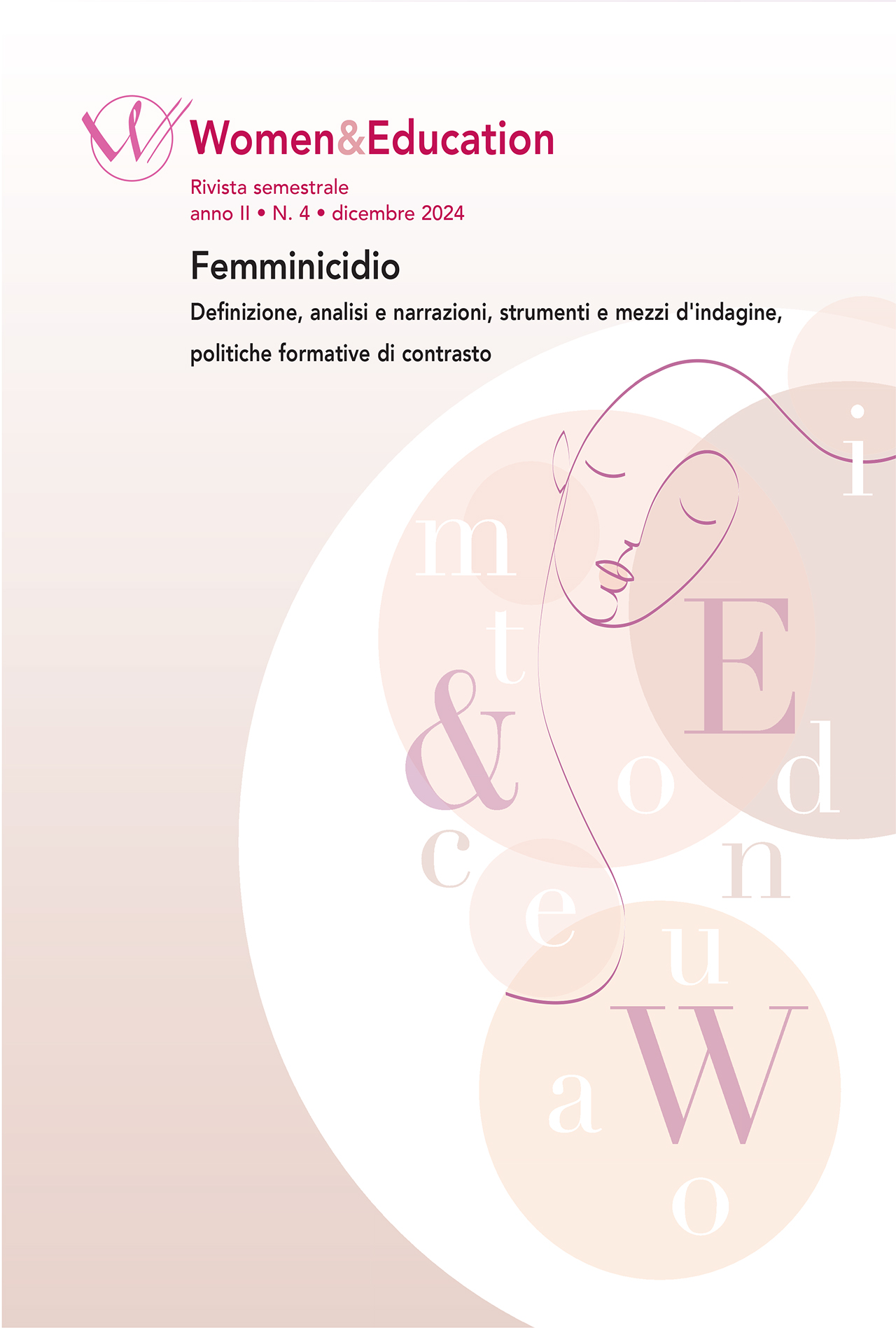Iran, the veil and women: a gender and intercultural pedagogical perspective
DOI:
https://doi.org/10.7346/-we-II-024-24_09Keywords:
Iran, women, veil, intercultural pedagogy, gender violenceAbstract
Violence against women who do not wear the veil emerged during recent protests in Iran (Hejazi, 2023), sparking a debate in defense of “violated bodies” (Ulivieri, 2014). This has taken on an educational significance, influencing the identity formation (Ulivieri, Pace, 2012) of the victims of a patriarchy that emphasizes inter-gender conflict (Burgio, 2020), rather than opening new intercultural and intersubjective solidarities (Cambi, 2006; Contini, 2002). This contribution investigates the roots of the veil mandate in Iran (Sabahi, 2020). Discussing educational models that perpetuate gender discrimination in the country, it highlights the role of pedagogy in building paths that transcend the “boundaries of the body” (Cagnolati, Pinto Minerva, Ulivieri, 2013; Lopez, 2017) for a new pedagogical “deconstruction” (Mariani, 2008).
Downloads
Published
Issue
Section
License
Copyright (c) 2024 Women&Education

This work is licensed under a Creative Commons Attribution 4.0 International License.

